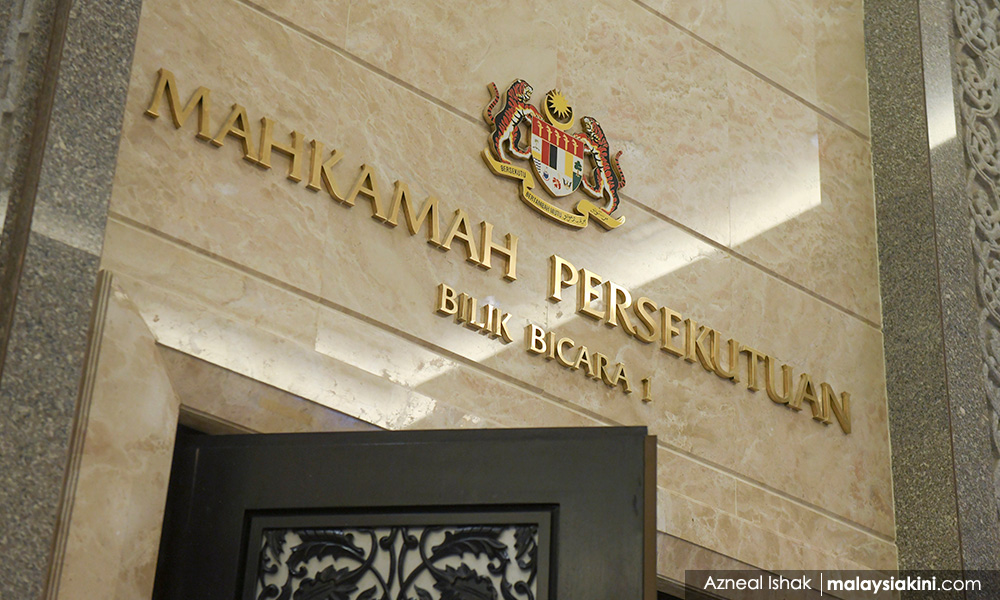I refer to the commentary in Malaysiakini dated March 1, 2021, titled “Why Guan Eng shouldn’t have been allowed to sue Perkasa” (‘the said article’) and feel various issues raised therein necessitate a response which I shall attempt here.
The authors of the said article essentially argue that public officials “ought to be held to a different standard when it comes to defamation suits due to their privileged positions in relation to the public”.
It is in this light that the said authors took the view that “…it has been established in several jurisdictions that public officials should be treated differently when they are criticised in their official capacities. After all, having been elected to serve the public, allowing them to sue that same public for defamation due to criticisms about how they do their job seems counterproductive, to say the least”.
I agree completely that the public ought to be free to criticise public officials about how they do their job without fear of any repercussions, be it civil or criminal.
This is consistent with the axiomatic principle that a democratically-elected government and holder of public office should be open to uninhibited public criticism in respect of public administration and affairs which the UK House of Lords rightly laid down in Derbyshire County Council v Times Newspaper Ltd & Ors (‘Derbyshire’).
But what of a situation where a person who happens to be a public official is condemned without basis personally for matters which have nothing to do with his job?
For instance, if a public official is named as one who is responsible for the embezzlement of monies unrelated to his designation or where the words complained of obviously implies that the said public official was a traitor to his country who is willing to divulge national secrets?
If such allegations made are unconnected to the nature of the said public official’s job and baseless, is it not reasonable for him to be allowed to clear his name, so to speak, by commencing defamation proceedings against his accuser to avoid possible criminal proceedings being brought against him?

These were matters considered by the Federal Court recently in Lim Guan Eng v Dato’ Ibrahim Ali and Pertubuhan Pribumi Perkasa Malaysia [Civil Appeal No: 02(f)-62-07/2019(W)] [‘Lim Guan Eng’].
In a majority judgment, the Federal Court allowed Lim’s appeal against the decision of the Court of Appeal dismissing his suit against the said defendants on the ground that he had no standing to bring the said suit as it was made in his capacity as chief minister of Penang and therefore the claim was made in his official capacity and not by him personally.
To this end, the Court of Appeal, following its previous decision in Utusan Melayu (Malaysia) Bhd v Dato’Sri DiRaja Hj Adnan Hj Yaakob [‘Adnan Yaakob’], dismissed Lim’s suit holding that he had no standing or locus standi to bring his said suit.
The Federal Court in Lim Guan Eng found as a fact, contrary to what the Court of Appeal concluded, that the facts of Lim’s case showed that the action was brought by Lim personally and not in his official capacity as chief minister and that the words complained of by Lim in his suit had named him and specifically referred to his disloyalty to the country both as chief minister and as a citizen.
To better comprehend the context in which the Federal Court allowed Lim’s appeal, it is necessary to consider the contents of the press statement dated Oct 1, 2011, by Ruslan Kassim, following an official visit by Lim to Singapore from Aug 11-12, 2011, where he had occasion to attend a dinner together with his officers and another individual (‘the said individual’) together with the chief executive of Temasek Holdings on Aug 12, 2011, which led to Lim’s suit. The said press statement essentially:
(i) Suggested that Lim attended a secret meeting between the political parties DAP and PAP, together with the said individual and another (‘the said individuals’);
(ii) Sought the meeting agenda to be disclosed;
(iii) Questioned whether the said individuals had previously organised such meetings between DAP and PAP; and
(iv) Stated that the whole of Malaysia was entitled to question the loyalty of Lim and the said individuals in relation to the visit.
It was in this context and the fact that Lim had sued in his personal capacity that the Federal Court found that his personal reputation had been tarnished by the said press statement as it was “beyond dispute that ordinary and reasonable members of the community will see the plaintiff (Lim) as a traitor to his country who is willing to divulge national secrets”.
To be fair to the majority of the Federal Court in Lim Guan Eng, the principle in Derbyshire referred to above was recognised as reflected in the following passage of its judgment:
“… It is anathema to a modern constitutional democracy to permit elected government authority to commence actions for damages for defamation against its citizens for the simple reason that it is those citizens who decide on that government or authority being placed in power.
“In other words, an elected governmental institution owes its very survival to those voting citizens and to the process bringing about its existence. In a similar vein, it is also incompatible that government litigation against its own citizens be funded by those very citizens who contribute to their coffers.”
The Federal Court, however, found that, due to the peculiar facts of Lim’s case, particularly that he was named personally in the said press statement and that the allegations therein were clearly baseless, he was entitled to sue the defendants in his personal capacity for defamation.
This is in line with what was decided in Derbyshire itself that individual officers of government bodies may sue for defamation as reflected in the following passage in the said judgment:
“... A publication attacking the activities of the authority will necessarily be an attack on the body of councillors which represents the controlling party, or on the executives who carry on the day to day management of its affairs. If the individual reputation of any of these is wrongly impaired by the publication, any of these can himself bring proceedings for defamation…”

The Federal Court then went on to identify various decisions from other jurisdictions which recognise the right of an individual public officer to sue for defamation if the circumstances warrant.
In the circumstances, the Federal Court considered the facts in Adnan Yaakob and rightly concluded that the words complained of as defamatory there “concerned him as the menteri besar, the elected representative and the political leader as well as the perceived weaknesses of his administration” which disentitled him to sue.
In light of the above, I am unable to agree with the views of the authors of the said article that Lim’s case comes within the principle that a democratically-elected government and holder of public office should be open to uninhibited public criticism referred to in Derbyshire.
The reason being that Lim, like any other citizen, ought to be allowed to protect his personal reputation against baseless accusations, particularly when such accusations were found by the Federal Court to paint Lim as a traitor to his country who is willing to divulge national secrets, very serious allegations indeed.
Therefore, I am of the view that the facts and circumstances of each case must be examined to determine if a public officer has been personally defamed, which Lim undoubtedly was, to give that public officer the right to sue his accuser personally.
To suggest that all public officers ought to be precluded from instituting defamation proceedings against those who defame them personally is, with respect, going too far as all individuals ought to be entitled to protect their reputations from being tarnished by irresponsible publications by the stroke of a pen, the force of which, can be far mightier than the sword.
RAMKARPAL SINGH is the member of Parliament for Bukit Gelugor in Penang and chairs the National Legal Bureau of the DAP. - Mkini
The views expressed here are those of the author/contributor and do not necessarily represent the views of MMKtT.



No comments:
Post a Comment
Note: Only a member of this blog may post a comment.